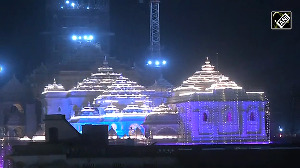 Justice Jagdish Singh Khehar, who led the five-judge constitution bench in the Supreme Court which had struck down the controversial National Judicial Appointments Commission Act for appointment of judges, was on Tuesday recommended as the 44th Chief Justice of India.
Justice Jagdish Singh Khehar, who led the five-judge constitution bench in the Supreme Court which had struck down the controversial National Judicial Appointments Commission Act for appointment of judges, was on Tuesday recommended as the 44th Chief Justice of India.
Chief Justice of India T S Thakur on Tuesday wrote a letter recommending the name of Justice Khehar, who is the senior most judge of the Supreme Court to be his successor.
Justice Khehar, 64, will be the first Chief Justice from the Sikh community and he will succeed CJI Thakur who will be demitting office on January 3, 2017.
Justice Khehar, who will be sworn in on January 4, will hold the tenure for over seven months till August 27, 2017.
Besides heading the bench in NJAC matter, Justice Khehar has also headed a bench which had set aside the imposition of President's Rule in Arunachal Pradesh in January this year.
He was also a part of the bench which sent Sahara chief Subrata Roy to jail while hearing the matter relating to the refund of money invested by people in his two companies.
Justice Khehar also headed a bench which recently gave a significant verdict holding that the principal of 'equal pay for equal work' has to be made applicable to those engaged as daily wagers, casual and contractual employees who perform the same duties as the regulars.
While the turf war between the judiciary and the executive over the appointment of judges for higher judiciary has intensified, Justice Khehar on the occasion of Constitution Day on November 26 had responded to the tirade from Attorney General Mukul Rohatgi by saying that the judiciary was working within its "lakshmanrekha".
"Judiciary is mandated to shield all persons, citizens and non-citizens alike, against discrimination and abuse of State power. Liberty, equality and dignity of citizen have flourished substantially in India due to the pro-active role of judiciary in the country," he had said.
Justice Khehar was also a part of the five-judge bench which answered the Presidential Reference whether all natural resources have to be alienated through auction.
The issue had arisen in wake of 2G spectrum allocation matter in which all 122 licences were quashed by the apex court.
Justice Khehar, writing a separate judgement, had opined that no part of natural resource can be dissipated as a matter of largesse, charity, donation or endowment for private exploitation.
He had held that each bit of natural resource expended must bring back a reciprocal consideration.
The consideration may be in the nature of earning revenue or may be to 'best subserve the common good', he had said, adding, it may well be the amalgam of the two.
Justice Khehar was also the Chairman of the Rajya Sabha appointed Inquiry Committee for investigating the grounds on which the removal of Justice P D Dinakaran, Chief Justice of the Karnataka High Court, was sought for alleged corruption.
Justice Khehar had assumed office as Judge of the Supreme Court on September 13, 2011.
Before his elevation to the apex court, he was the Chief Justice of High Court of Karnataka, where he assumed his office on August 8, 2010.
He was also the Chief Justice of Uttarakhand High Court and was the Acting Chief Justice of Punjab and Haryana HC twice with effect from August 02, 2008, and again, from November 17, 2009.
He became a judge of the Punjab and Haryana high court on February 8, 1999.
An LLM from Panjab University, he was enrolled as an advocate in 1979, was appointed as Additional Advocate General in Punjab, in January 1992, and then as Senior Standing Counsel, Union Territory, Chandigarh.
He was designated as senior advocate in February, 1995 and remained standing counsel for Universities, Corporate Bodies and a large number of companies and cooperative organisations.
Photograph: PTI Photo











 © 2025
© 2025